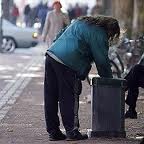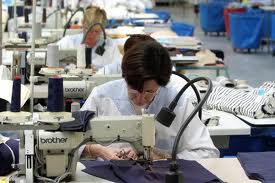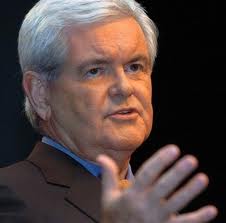 Whilst the myth of the self-made man or woman has less credibility these days, the idea that the poor are responsible for their own fate continues to have widespread currency in many English speaking countries today. This is a key to understanding why people so readily accept the presence of poverty in wealthy countries.
Whilst the myth of the self-made man or woman has less credibility these days, the idea that the poor are responsible for their own fate continues to have widespread currency in many English speaking countries today. This is a key to understanding why people so readily accept the presence of poverty in wealthy countries.
Rather than blaming social institutions or government failures many people blame individuals for their own fate. They tend to agree with statements such as “I can’t understand why some people make such a fuss over the disadvantaged state of the poor, most of them could improve their condition if only they tried” or “Although we don’t like to face it, most people on welfare are lazy” or “In this country, almost everyone can make it if he tries hard enough.”
 Although poverty is usually associated with unemployment, substantial numbers of people remain poor despite working hard, in countries such as the UK, Australia and the US. In Australia 7.4 percent of employees (460,000 adults) in 1998 had incomes that were less than the official poverty line. This compared with 3 percent (139,000) in 1981. Some of these workers don’t work enough hours to earn a living but increasingly full-time workers are falling below the poverty line because of low wages. In Britain the likelihood that a family with a male breadwinner would be in poverty increased by nine times between 1979 and 1999.
Although poverty is usually associated with unemployment, substantial numbers of people remain poor despite working hard, in countries such as the UK, Australia and the US. In Australia 7.4 percent of employees (460,000 adults) in 1998 had incomes that were less than the official poverty line. This compared with 3 percent (139,000) in 1981. Some of these workers don’t work enough hours to earn a living but increasingly full-time workers are falling below the poverty line because of low wages. In Britain the likelihood that a family with a male breadwinner would be in poverty increased by nine times between 1979 and 1999.
In the US in the 1990s almost 60 percent of families living below the poverty line had at least one member working. Many workers barely earned enough to live on and were “sinking into debt and poverty”. Between 7 and 9 million people who had jobs were classified by the US government as living in poverty. (Other estimates are considerably higher as the definition of poverty varies.) The number of full-time US workers who earned less money than was considered necessary to live on rose between 1979 and 1992 from 12% to 18%. During that time the number of young people (18-24) earning less than a living wage doubled to 46%.
However attitudes to the poor in the US have traditionally been the same as they have been to the unemployed. A 1970s study of the attitudes of  Americans to the poor found that more than half of those surveyed blamed the individuals themselves. In particular 58% said “Lack of thrift and proper money management by poor people” was a very important reason for poverty and another 30% said it was somewhat important. Similar percentages gave “Lack of effort by the poor themselves” as the reason. These reasons were closely followed by “Lack of ability and talent among poor people” and “Loose morals and drunkenness” (48% and 31% respectively).
Americans to the poor found that more than half of those surveyed blamed the individuals themselves. In particular 58% said “Lack of thrift and proper money management by poor people” was a very important reason for poverty and another 30% said it was somewhat important. Similar percentages gave “Lack of effort by the poor themselves” as the reason. These reasons were closely followed by “Lack of ability and talent among poor people” and “Loose morals and drunkenness” (48% and 31% respectively).
Another study by Stanley Feldman of the University of Kentucky found similar results with respect to the poor. It discovered that 58% of people agreed that “Many poor people simply don’t want to work hard” and a similar percentage agreed that “Maybe its not their fault but most poor people were brought up without drive or ambition.”
These people are at the bottom of the social hierarchy, and although they work hard they are held responsible for their failure to succeed in a society where there is supposed to be equality of opportunity and where anyone can make it if they work hard enough. Yet a study by Marlene Kim, published in the Journal of Economic Issues, found that “few of the working poor would be able to work enough hours to earn their way out of poverty: most command wages that are so low that working full-time and year round would still leave them poor.”
Increasingly however, workers at the bottom of the occupational hierarchy are employed in temporary and insecure jobs and find themselves rotating through periods of unemployment and low paying jobs. This is a major reason for increasing levels of poverty and welfare dependence in modern societies. However the community has even less sympathy for the unemployed than the working poor.
 The perception of the unemployed as responsible for their own fate, as a corollary to the belief that those willing to work hard will find success, is reinforced by the corporate establishment and politicians. Politicians would rather the unemployed were blamed for their situation than the government for not providing the economic conditions for job growth. Corporations, too, would prefer to draw attention away from their role in creating unemployment.
The perception of the unemployed as responsible for their own fate, as a corollary to the belief that those willing to work hard will find success, is reinforced by the corporate establishment and politicians. Politicians would rather the unemployed were blamed for their situation than the government for not providing the economic conditions for job growth. Corporations, too, would prefer to draw attention away from their role in creating unemployment.
During times of ‘full employment’, officially defined as less than 1.5% unemployed, it is widely assumed that anyone who is unemployed must have chosen to be so. However, such figures disguise situations where jobs may exist in areas where the unemployed don’t live or may require skills the unemployed don’t have. Even employers of unskilled workers may find some of those applying for jobs undesirable for a variety of reasons ranging from appearance through to lack of work experience.
 Even in times of high unemployment, a significant proportion of the community in English speaking countries believe that unemployed people could get a job if they tried hard enough, if they really wanted one. Paradoxically, the community often expresses more hostility to welfare payments during times of recession when jobs are difficult to get and unemployment levels are high. Those with jobs find it more difficult to cope financially in such times and are even more resentful of the taxes they are paying towards welfare. However, the community is often primed to be unsympathetic to the unemployed by the media, the government and corporate propaganda.
Even in times of high unemployment, a significant proportion of the community in English speaking countries believe that unemployed people could get a job if they tried hard enough, if they really wanted one. Paradoxically, the community often expresses more hostility to welfare payments during times of recession when jobs are difficult to get and unemployment levels are high. Those with jobs find it more difficult to cope financially in such times and are even more resentful of the taxes they are paying towards welfare. However, the community is often primed to be unsympathetic to the unemployed by the media, the government and corporate propaganda.
In his book In the Shadow of the Poorhouse Jeffrey Katz claims: “The availability of work for every ablebodied person who really wants a job is one of the enduring myths of American history.” In the 1960s the city of Newburgh in New York became a model for other cities throughout the US for its programme of getting tough on welfare recipients and reducing their numbers through strict regulations. The city manager, Joseph Mitchell, described their reforms:
We challenged the right of moral chiselers and loafers to squat on the relief rolls forever. We challenged the right of cheaters to make more on relief than when working. We challenged the right of those on relief to loaf by State and Federal edit. We challenged the right of people to quit jobs at will and go on relief like spoiled children.
 Leading US Republican, Newt Gingrich (picutured) argued that the welfare system is based on a “redistribution ethic that subsidizes idleness. Nothing could be less traditionally American than the modern welfare system. It violates the American ethic that everyone should work hard to improve both their own lives and the lives of their children.” Robert Rector, from the Heritage Foundation, a leading conservative think tank, claimed that welfare “awards permissiveness”.
Leading US Republican, Newt Gingrich (picutured) argued that the welfare system is based on a “redistribution ethic that subsidizes idleness. Nothing could be less traditionally American than the modern welfare system. It violates the American ethic that everyone should work hard to improve both their own lives and the lives of their children.” Robert Rector, from the Heritage Foundation, a leading conservative think tank, claimed that welfare “awards permissiveness”.
False community perceptions about how easy it is to get a job are fed by anecdotal accounts put about by business people with their own agendas, who allege they are finding it difficult to fill vacancies:
In a recent case of which I have personal knowledge, a large, centrally located Sydney corporation advertised for a young woman. The job advertised was in pleasant surroundings, the qualifications sought were modest and the pay was good.
The advertisement evoked one response, and this is a city where allegedly numerous young people are unemployed seeking work.
The unemployed tend to be blamed for their own plight by large sections of the community. In particular, welfare recipients are “pictured as virtually irredeemable, lazy, dependent, living off the hard-earned money of others.”
 Previous Previous |
 Next Next |